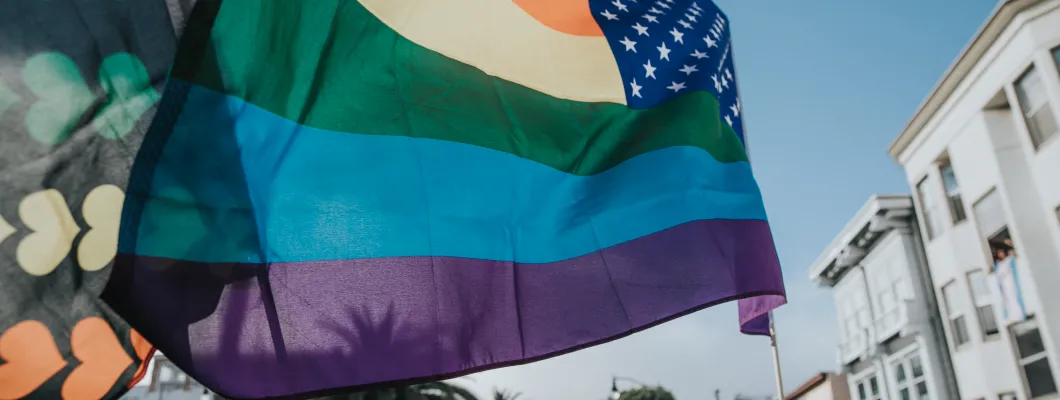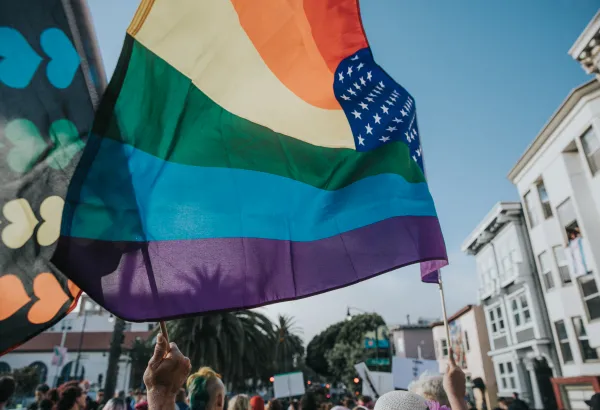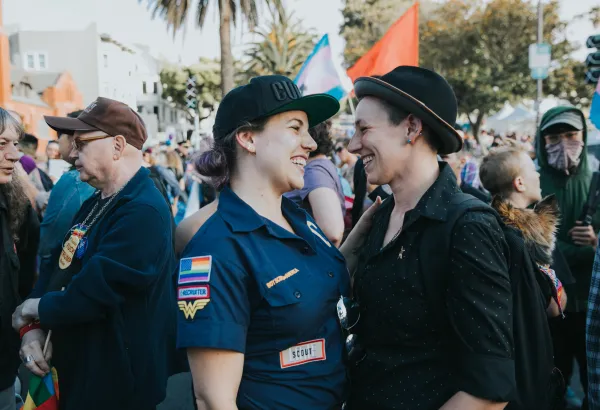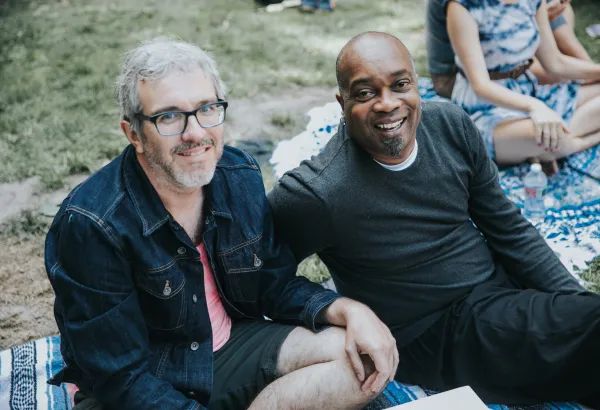 Photo by Jamie Thrower
Photo by Jamie Thrower
The Facts: LGBT Anti-Discrimination Quiz
Legal protection from discrimination is still a struggle for lesbian, gay, bisexual, and transgender people in the United States. Test your knowledge on LGBT anti-discrimination laws.
What percentage of LGBT people say they experience discrimination based on their sexual orientation or gender identity?
 Photo by Jamie Thrower
Photo by Jamie Thrower According to a 2016 survey by the Center for American Progress, 1 out of 4 LGBT people (25.2%) said they experienced anti-LGBT discrimination in the past year. Discrimination routinely affects the ability of LGBT people to find and keep a job, find a good home, and be active in their communities.
True or False: Federal law protects gay and transgender individuals from all forms of discrimination.
 Photo by Jamie Thrower
Photo by Jamie Thrower FALSE. There is no federal law explicitly prohibiting discrimination based on sexual orientation or gender identity. Several federal courts, however, have concluded that LGBT people are protected from discrimination under current federal laws that prohibit discrimination based on sex.
How many states have laws that fully protect LGBT people from discrimination?
 Photo by Jamie Thrower
Photo by Jamie Thrower In 21 states and the District of Columbia, state law protects people from discrimination on the basis of sexual orientation and gender identity in employment, housing and public accommodations such as service in a restaurant. That leaves LGBT people 29 states without comprehensive civil rights protections.
When it comes to business support for protecting LGBT people from discrimination, which of the following statements is true?
 Photo by Jamie Thrower
Photo by Jamie Thrower Business leaders know that protecting every American from discrimination is good for the country, and good for the economy. Lesbian, gay, bisexual, and transgender adults have a combined buying power of $884 billion, and business leaders know that today’s generation of consumers prefer to shop at businesses that support gay and transgender people. 9 out of 10 Fortune 500 companies have policies protecting LGBT workers from discrimination. According to recent polls, 2/3 of small business owners (66%) believe that businesses should not be able to deny gay and transgender people goods and services based on their religious beliefs.
True or False: Violence against LGBT people is a thing of the past.
 Photo by Jamie Thrower
Photo by Jamie Thrower FALSE. According to the National Coalition of Anti-Violence Programs, 20-25% of lesbian and gay people experience hate crimes sometime in their lives. The coalition reports that homicides against the LGBT community have surged since 2007. Among those most at risk: transgender women, LGBTQ and HIV-affected people of color, and transgender people of color.
Some say businesses should be allowed to discriminate against LGBT people based on religious beliefs. Why is this a bad idea?
 Photo by Jamie Thrower
Photo by Jamie Thrower Lawmakers in several states have proposed laws to allow businesses to discriminate against LGBT customers based on religious beliefs. These laws go against everything America stands for.
What’s the number-one most important thing we need to do to legally protect LGBT people from discrimination?
 Photo by Jamie Thrower
Photo by Jamie Thrower All of these steps are important, but the one step that will ensure that LGBT people are protected from discrimination is updating our laws. Our country’s commitment to advancing fair and equitable treatment for all Americans is already reflected in laws that protect people from discrimination based on their race, ethnicity, sex, religion and other characteristics. It’s time to update these laws so that LGBT people have an equal opportunity to contribute to the success of our communities, our society, and our economy.
Today, solid majorities of Americans support laws and policies aimed at reducing discrimination against LGBT people. People across the country have come to understand that the strength and the success of our communities and our economy depend on the diverse talents and skills of all people. We’re all better off when everyone has a chance to thrive. To learn more visit Freedom For All Americans and share this quiz to help spread the word.



